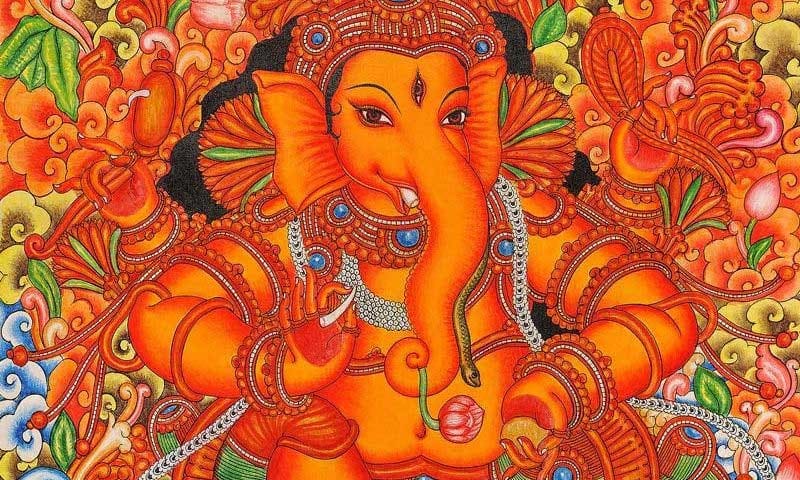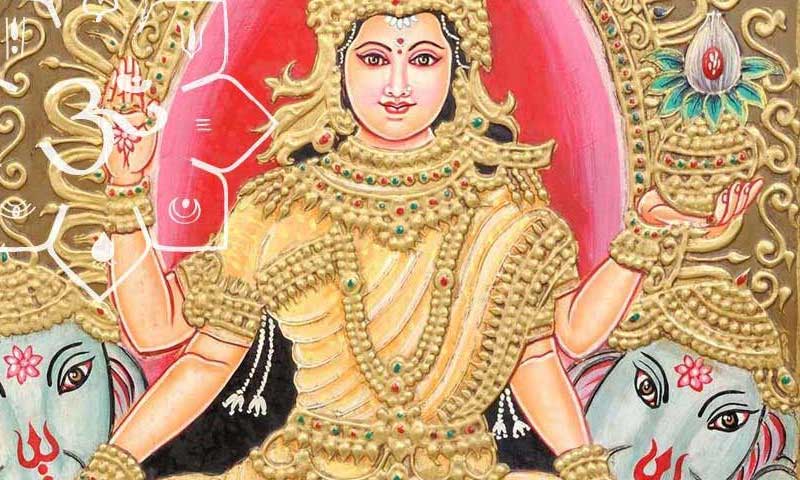HINDU DIVINITIES
INTRODUCTION
All the Hindu scriptures state that there is a one and only Reality, a supreme and absolute Being, both transcendent and immanent, that expresses itself in a multitude of forms. “Truth is One, sages call it by different names” recites a famous hymn in the Rig-veda.
“In the Beginning, there was only the Being”… “One without a second”… “indescribable, infinite, not confined to time or space; source of everything”.
These are only some of the thousands of references to the Brahman, the Absolute, that witness the Hindu monotheism.
This state of pure transcendency, however, is very complex to achieve with the mind and the common senses
So here rises the idea of Ishvara or a “personal” God, omniscient, all-pervading, residing in the heart of beings and taking on attributes of name and form.
The multiple forms of that only God, known as Ganesha, Durga, Lakshmi, Shiva, Vishnu, and so on, represent functions and forces that help the devotee in the process of meditation and devotion.
The multiplicity of divine manifestations has 2 main effects: on the one hand, the devotee may find his or her most loved form of the Divine (ishtadevata); on the other, it favours the attitude that makes one see God in every aspect and so recognize sacredness in everything.
This also highlights that the God of Hindus cannot be different from the God of other religions… otherwise, yes, it would involve a radical polytheism!
GANESHA
THE LORD WHO REMOVES ALL OBSTACLES
In any occasion, the first God towards whom we turn and the most loved is Ganapati, Ganesha, Vinayaka: each and every Hindu ceremony and ritual begins with an invocation to this divinity. The move to a new house, the launch of a new project, the beginning of a journey could be scattered with dangers if Ganesha isn’t invoked first.
Ganesha, the elephant headed God, is the God of wisdom and intelligence, and is also adored as the one who removes obstacles, defends good actions and sows difficulties on the path of the evil. The richness of forms and attributes in his iconography reveals innumerable meanings.

LAKSHMI
THE BENEVOLENT DIVINE MOTHER
In the Hindu tradition, Lakshmi is one of the most benevolent feminine divinities, associated to light, prosperity (both material and spiritual) and purity. Even as Vishnu’s consort, she has an autonomous cult widespread in all Hindu traditions. She is often called Shri (title often given to Deities in an honourary function) to highlight her characteristics of beauty, perfection and glory. Lakshmi is also associated to kings because in the ancient Hindu scriptures, kings were considered representatives of the Divine, almost an incarnation. The king, therefore, was obliged to keep watch that his wealth and privileges were used in the service of God. Another name given to Lakshmi is Chanchala, “unstable” indicating her tendency to not remain stable with anyone.


